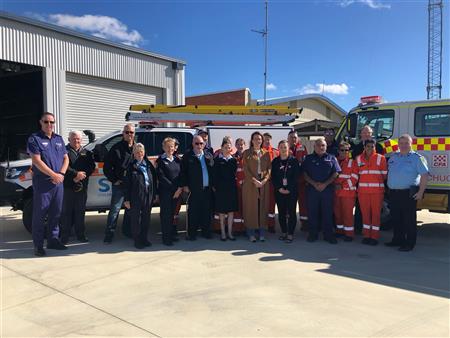
As COVID-19 lockdowns and social restrictions begin to ease across Australia, Burnet Institute researchers are concerned about the need for gay and bisexual men (GBM) to be well-supported in re-engaging with health services and accessing HIV prevention medication, PrEP, and testing for HIV.
Analyses of the latest national data from the ACCESS surveillance system shows prescriptions for PrEP declined rapidly and significantly following the introduction of COVID-19 restrictions in April, mirroring behavioural data from the same period showing a massive decline in casual sex among GBM in Australia.
In correspondence published in the journal AIDS, Burnet Institute PhD Student Michael Traeger warns of the potential for increased HIV transmission in the event that sexual activity among GBM returns to pre-COVID-19 levels without a congruous and timely rebound in testing and PrEP use.
“As restrictions change and as restrictions ease, it’s going to be really important that we support gay and bisexual men in restarting PrEP appropriately,” Mr Traeger said.
Burnet’s analysis of more than 52,000 prescriptions for PrEP issued at 42 clinics across Australia shows an immediate 33 per cent drop from the start of April – when public health restrictions came into force – through to the end of June, compared to relatively stable figures for the previous in the 12 months.
In Victoria and New South Wales, which represent 77 per cent of prescriptions in the study, the falls were 36 per cent and 34 per cent respectively.
“This reflects the behavioural data that we’ve been seeing from other researchers showing that there’s been a massive decline in the number of gay and bisexual men reporting casual sex,” Mr Traeger said.
“It will be very important to monitor how GBM and other PrEP users are transitioning between periods of PrEP use, if they are using PrEP on demand or whether they’ve stopped using PrEP altogether and, as COVID-19 restrictions fluctuate over the next year or so, how that’s going to affect PrEP use.”
Mr Traeger said stopping and restarting PrEP may create issues that regular users may not have previously encountered or considered, including the need to link back into care, the need to re-establish a testing regimen for STIs and HIV, and the management of side effects.
“We also need to closely monitor the impact of COVID-19 restrictions on behaviours over the next 12 to 18 months to ensure a timely return to adequate testing to counteract any increases in HIV transmission as levels of casual sex return to normal,” Mr Traeger said.
“It’s all about making sure that people are increasing their testing and that they are supported to start PrEP appropriately and safely as they’re starting to have casual sex again.”








